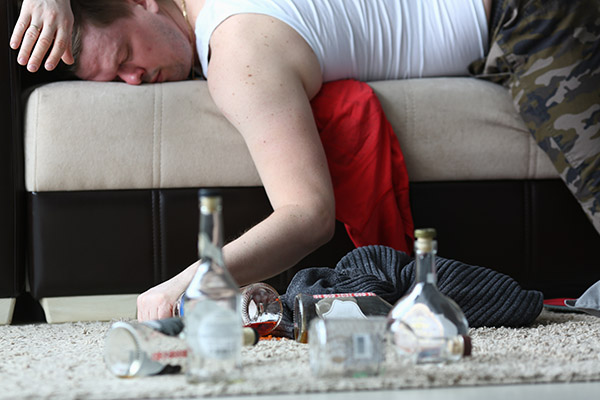When people talk about alcoholism or someone having an alcohol use disorder (AUD), they most often think about someone who drinks every day, who drinks uncontrollably, who often gets blackout drunk, or that has little ability to control their drinking. When most people don’t think about when they think of an alcoholic or someone who needs detox or rehab for their drinking is a person who engages in binge drinking.
Binge drinking is the act or behavior of consuming a large amount of alcohol in a short period of time. According to the Centers for Disease Control and Prevention (CDC), binge drinking is “the most common and costly pattern of excessive alcohol use in the United States.” The National Institute on Alcohol Abuse and Alcoholism, part of the National Institute of Health (NIH), defines binge drinking as “a pattern of drinking alcohol that brings blood alcohol concentration (BAC) to 0.08 percent- or 0.08 grams of alcohol per deciliter- or higher. For a typical adult, this pattern of alcohol misuse corresponds to consuming 4 or more drinks (for a female), or 5 or more drinks (for a male) in about 2 hours.” Additionally, according to a 2019 National Survey on Drug Use and Health, about 66 million Americans (about 24% of the population of the United States age 12 and older, report a pattern of binge drinking at some point within the time frame of one month.

While alcoholism or suffering from an alcohol use disorder may be dangerous, binge drinking can also be dangerous and carry with it a number of consequences or health concerns. Therefore, a pattern of binge drinking by an individual should not be taken lightly, can often be a cause of concern, and may place that individual at need for receiving detox, addiction treatment, or some other medical service or intervention.
A pattern of behavior associated with binge drinking can develop into a dangerous pattern, depending on the consistency and frequency of which someone binge drinks. Binge drinking is a behavior often associated with high school and college students, as well as young adults right after college. One of the most dangerous consequences of binge drinking can be the potential for physical injuries or medical complications. These can include:
- Alcohol poisoning
- Heart attack
- High blood pressure
- Liver issues
- Inflammation of the stomach, pancreas, brain, or spinal cord
- Physical injury due to falling, including head injury or broken bones
- Seizures
- Vomiting
- Decreased breathing
- Accidental alcohol overdose
Additional consequences can come from the behaviors that occur when someone is binge drinking. These can include:
- Drinking and driving, including arrest or harming or killing other drivers or passengers
- Arrest or involvement with law enforcement
- Fights or domestic abuse
- Aggressive or violent behavior
- Problems related to personal or sexual relationships, employment, finances, or other legal issues
Binge drinking does not mean someone is an alcoholic, suffers from alcohol addiction or alcohol use disorder, or is in need of detox or addiction treatment. However, binge drinking can be a dangerous behavior, and an increase in the frequency or alcohol intake amount over a sustained period of time may increase the risk of developing an alcohol use disorder and needing professional intervention such as detox or rehab. It is important that if someone feels they are suffering due to binge drinking, or if the loved ones of someone who is binge drinking identify it is becoming problematic, that the individual or loved ones reach out for help.
If you or someone you know needs help with addiction or co-occurring disorders, please give us a call. Innovo Detox offers the latest in evidence-based medical, psychiatric, and clinical care for those in need of detox and medical stabilization in Pennsylvania and the surrounding Mid-Atlantic area. If we aren’t the best fit for you or a loved one, we will take the necessary time to work with you to find a detox, rehab, treatment center or provider that better fits your needs. Please give us a call at (717) 619-3260 or email our team at info@innovodetox.com. For more information on our company or services, please visit our website at www.innovodetox.com.
